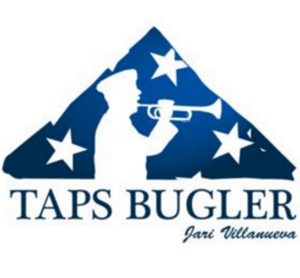THE DUTY DAY (IN CAMP)
This is sample of a duty day with calls. This can be modified to suit the event
5:50 AM – Assembly of Buglers/Trumpeters [First Call]
The first signal for the soldiers to rise and shine. This call was historically sounded between 4:45 AM – and 6:00 AM – depending on the season. It bears a similarity to the French Cavalry call “La Garde a Vous.”
6:00 AM – Reveille
Upon the last note of this call, the flag was raised, the morning gun fired and the men all had to assemble for morning roll call. It is the same as a French call which dates from the time of the Crusades. (There were three daily roll calls, viz.: at reveille, retreat, and tattoo. Made on the company streets by the first sergeant, superintended by a commanding officer of the company.)
6:15 AM – Stable Call
Soldiers in the cavalry would report to the stables to feed and groom their mounts.
6:30 AM – Breakfast Call [Mess Call]
7:00 AM – Sick Call
Soldiers who were ill were to report to the hospital for examination by the surgeon.
7:30 AM – Fatigue Call
Those soldiers appointed to a work party would report to their assignments.
8:50 AM – Guard Mounting, Assembly of Trumpeters
First call for “Guard Mount”, or the changing of the 24-hour guard detail.
8:55 AM – Guard Mounting, Assembly of Guard Detail
Men assigned to guard duty assemble in front of their respective barracks.
9:00 AM – Guard Mounting, Adjutant’s Call
The guard details were marched to the guardhouse where the Guard Mount ceremony took place.
9:15 AM – Water Call
Horses received their watering.
9:55 AM – Drill, First Call
Preparatory call for soldiers assigned to morning drill.
10:00 AM – Drill, Assembly
Soldiers would practice the Manual of Arms, bayonet drills and marching. New recruits would be taught more basic skills.
11:00 AM – Recall from Drill
Morning drill was to cease.
11:30 AM – Recall from Fatigue
Morning work parties were to cease at the sound of this call.
12:00 Noon. Dinner Call [Mess Call]
Dinner was the main meal of the day.
1:00 PM – Fatigue Call
Afternoon work parties.
1:30 PM – First Sergeant’s Call
Company First Sergeant;s were to report to the post headquarters with their “Morning Reports” on the number of their men sick in the hospital, on guard duty, on drill or fatigue, or on special assignment.
2:00 PM – Mounted Drill, Boots and Saddles
This signal alerted cavalrymen to put on their riding boots and saddle their horses.
2:30 PM – Dismounted Drill
Cavalrymen are to practice all movements on foot before attempting them on horseback. This drill also allows cavalry men to prepare for battle on foot.
3:30 PM – Recall from Drill
Afternoon drill was to cease.
4:30 PM – Water and Stable Call
Horses received their afternoon watering and cavalrymen repeated the morning care of their horses.
5:00 PM – Recall from Fatigue
Afternoon work parties were to cease at the sound of this call.
5:15 PM – Assembly of Trumpeters for Retreat
Preparatory call for Retreat Parade.
5:30 PM – Assembly
The entire garrison would turn out for the Retreat ceremony. The actual lowering of the flag and playing of Retreat would occur at sunset.
5:45 PM – Adjutant’s Call
The Captains march the companies (musicians playing) to the regimental parade grounds, where they take positions in the order of battle. After reporting to the senior officer present, the Retreat ceremony would commence.
6:00 PM – Retreat
The flag-lowering ceremony. Roll call
8:55 PM – Assembly of Trumpeters for Tattoo
9:00 PM – Tattoo
“Tattoo” was the signal for the men to prepare for bed and to secure the post.
9:05 PM – Assembly
Bed check, the last roll call of the day.
9:15 PM – Taps
By the final note of “Taps” all lights were to be extinguished, all men bedded down in their bunks, and all loud talking was to cease,











Thank you for putting together the “School of the Bugler” portion, as a new bugler it’s invaluable.
It was put together as a guide for re-enactors since there was no “bugle manual” of the time.
It uses material from the School of The Soldier” but adapted for buglers.
thanks
I am curious about the “School of the Bugler.” Is it from Hardee, or did you compose it?
In either event, it is most useful.
Seeing as the confederate army was modeled exactly the same way as the union army, regulations are the same.
They use the same calls for EVERYTHING.
You must remember most if not almost all officers in the Confederate Army resigned from the Union army to join the confederates.
Hi Great article and quite informitive. Do these regulations apply for the Confederates as well as the Union? Are the calls mostly the same? The type of Buge? The Uniform? Do you know if there is a list and music of Confederate calls?
Thanks!